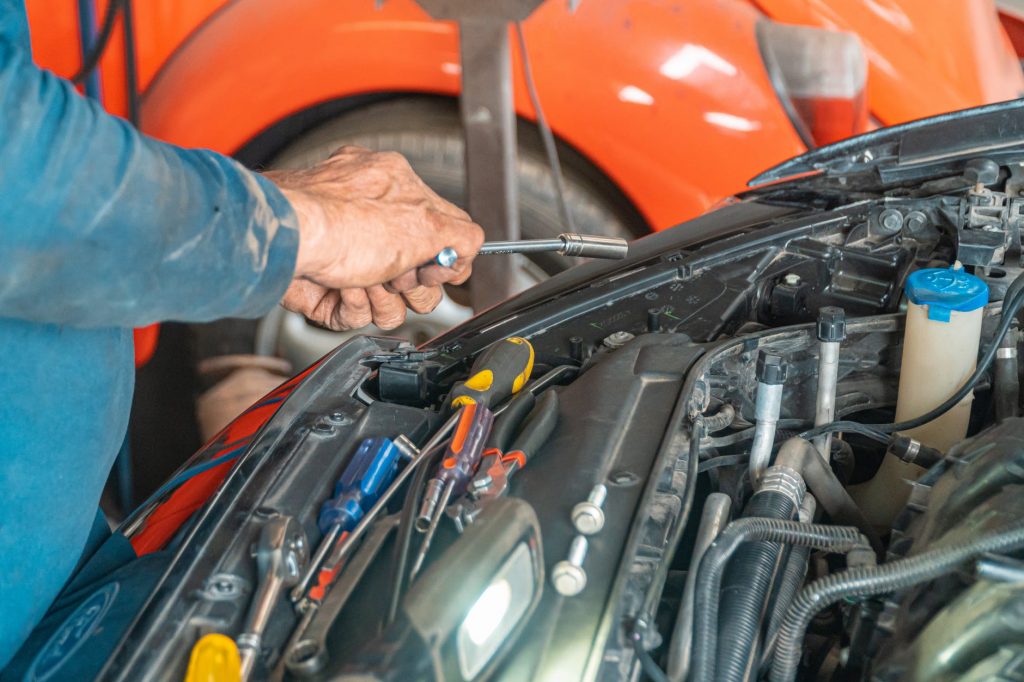Oil is widely used in different industries, with its ability to lubricate certain parts of an engine to reduce friction, and keep moving machine parts to run smoothly. However, there is a certain level of consuming engine oil, in which when it becomes excessive, it might damage the engine permanently. Modern engines are required to only consume less than a half quart of oil every 5,000 miles of driving. With newer cars, they have the capacity to consume much less. This is a natural and normal measure for those engines, which means that they are working just fine with this much. You would not need to worry about this. And any consumption beyond the usual amount is excess consumption, which should be immediately addressed.
However, there are still other factors that change the status of how engines demand more oil. If you do not supply them with enough engine oil, you might as well just fix the problem that causes it to lose more as it might damage the engine. A damaged engine means you might have to change the entire engine itself and might cost you to spend more.
You may think that the excessive engine oil consumption is primarily the oil’s fault, especially if you did not notice unless you have it checked or changed. There are various causes of why this happens, few of which include poor quality oil, high oil pressure, old engine, or synthetic oil. These causes must be avoided whatever happens. Read on about the causes to be more aware.
Poor Quality Oil
There are certain types and brands of engine oil that can only be used for certain types of engines. Using the wrong one might damage the engines, causing them to burn. Given this situation, the oil would not be able to lubricate the certain movable parts of the engine sufficiently because of what happened, which causes the engine to consume more oil.
Oils darken when it becomes old. There are instances when you notice your engine oil to be dark brown or black in color. Immediately get it changed with a new one through repair shops, or have it changed by yourself. It is known to be an easy DIY job, and what you only need is a new oil, oil filters, drain pans, wramps, and just about a short amount of time.
You must always have your engine checked, and the oils to be checked as well before putting them into the engine. Unwanted consequences might happen if you force them with low-quality oil. It does not only quickly burn out inside, but might also leave with more carbon and lacquer films that come from the degradation of oil.
High Oil Pressure
Oil pressure is determined with how much resistance the oil faces when it flows through the oil passages of the engine. It is required to measure for the oil to reach all certain parts of the engine. And if the oil pressure reading was outside of the range, it is deemed to be too high or too low. When high oil pressure happens, the oil has the possibility to fill up the engine massively. It means that the oil was not able to go through the passages properly, and failed to reach all parts of the engine efficiently. This results in the oil falling on the cylinders, getting them burnt up.
Causes of high oil pressure might be because of a faulty engine setting inside the machine because it has not been lubricated correctly, or might be because too much oil has been added during an oil change. No matter what the cause may be, it is still important to be cautious and maintain the smooth flow of the engine by having it checked regularly.
Old Engine
Most engines do not last longer than five years. The amount of oil the engine will be consuming depends on how old the engine currently is. For the first few years of your new engine is when it does need only a least amount of oil because its components and parts are still new and strong. But after you have used them continuously, and you have put enough miles on them, the seals and gaskets inside the engine might start to deteriorate, causing them to have small leaks. This also only means that the engine will be consuming oil quicker.
Synthetic Oil
Synthetic oils are known to lubricate the engine better than the general one. But because they are formulated differently, they have various flow properties and they can be able to get through tighter openings than regular oils. Moreover, if you have an older engine, or maybe the seals and gaskets have started to deteriorate, synthetic oil is often the major cause when it comes to high oil consumption. Switching back to the regular one will stop minor leaks.
Key Takeaway
These common causes of excessive engine oil consumption are preventable, and still can be fixed only if you pay attention to the oil that you are using, and all the other elements and components that work with it. Always remember to use a high quality and appropriate oil that is recommended for your engine. Fix any noticeable issues you can spot on as soon as you see them such as oil leaks, and replace piston rings and valve stem seals if needed. If you maintain your engine this way, it will be in good shape and work in its proper form.

